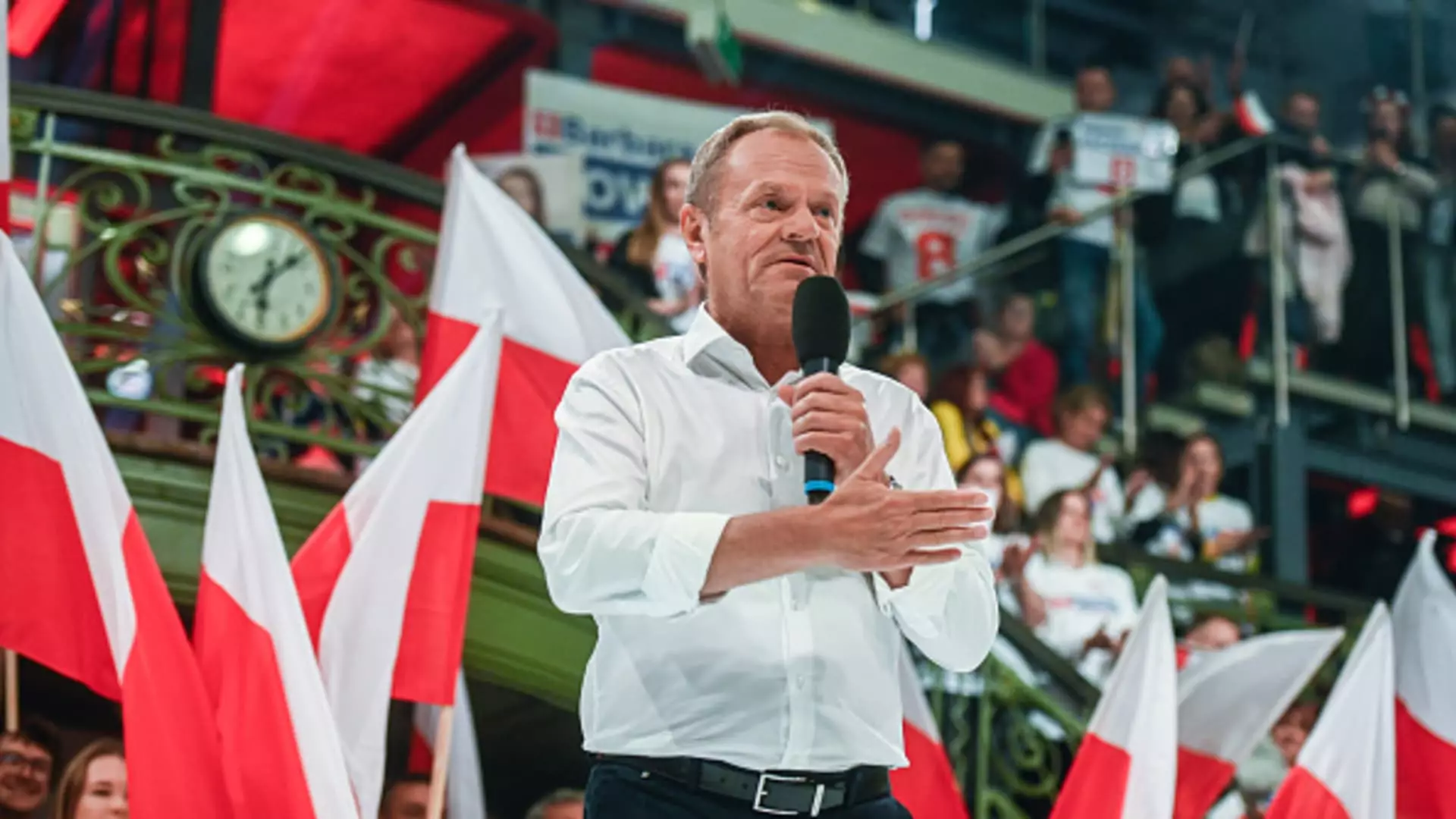In a surprising turn of events, opposition leader Donald Tusk declared victory in the general election, stating that the combined support of three opposition parties would be enough to oust the governing conservative nationalist party, Law and Justice. An exit poll conducted by Ipsos suggested that the opposition had secured 248 seats in the 460-seat lower house of parliament, known as the Sejm. Law and Justice obtained 200 seats, while the far-right Confederation party gained 12 seats. This outcome has profound implications for the future of Poland and its democracy.
Donald Tusk, visibly elated by the result, declared that democracy had prevailed and Poland had triumphed. The victory of the opposition marked a significant shift in power, potentially ending the dominance of Law and Justice. However, it remains uncertain whether the opposition’s success will translate into a new term of government for them. Buoyed by the nearly 37% of the vote secured by his party, Law and Justice leader Jaroslaw Kaczynski admitted the uncertainty of his party’s ability to retain power. Regardless of the outcome, Kaczynski emphasized the importance of implementing their agenda, hinting at their determination to shape the future of Poland.
Many observers believe that this is the most crucial election since 1989, when Poland transitioned to democracy after decades of communism. The election outcome affects several fundamental aspects of the country, including the nation’s constitutional order, LGBTQ+ rights, abortion, and its foreign alliances. Notably, Poland’s relationship with the European Union is in question due to Law and Justice’s erosion of checks and balances and strained relations with European allies. The EU has withheld funding from Poland amid concerns about democratic backsliding.
Law and Justice’s popularity has waned since the 2019 election, with allegations of cronyism, high inflation, and economic mismanagement. The party, which secured nearly 44% of the vote in 2019, has seen its support decline to around 30% in recent weeks. Critics argue that the party’s economic policies, characterized by high social spending and a high level of state ownership in the Polish economy, have contributed to inflation. Furthermore, Law and Justice has been accused of building a system of patronage, offering jobs and contracts to its loyalists.
The Impact on Poland’s Relationship with Ukraine
The general election outcome also has significant implications for Poland’s relationship with Ukraine. The Confederation party campaigned on an anti-Ukraine message, accusing the country of ingratitude for Poland’s assistance during Russia’s invasion. While Poland has been a staunch ally and a transit hub for Western weapons to Ukraine, relations have soured, exacerbated by a dispute over Ukrainian grain imported into Poland’s market. The election result may determine the future course of Poland’s engagement with its neighbor to the east.
As the election unfolded, opposition groups voiced their disapproval of a simultaneous referendum on migration, retirement age, and other issues. They accused the government of trying to manipulate emotions and called on voters to boycott the referendum. With more than 31,000 voting stations spread across Poland, as well as over 400 voting stations abroad, the high stakes prompted over 600,000 Poles to register to vote abroad. The Foreign Ministry faced controversy when its spokesperson was dismissed for spreading false information regarding the counting of votes cast abroad.
Final results of the election are expected by Tuesday morning, as votes are still being counted by the state electoral commission. Regardless of the outcome, Poland stands at a critical juncture. The success of the opposition offers hope for a shift in the country’s political landscape and a chance to restore democratic values and repair relations with international partners. However, challenges lie ahead as Poland grapples with pressing issues such as the rule of law, economic stability, and social cohesion. The international community will closely watch how Poland navigates the road ahead and the impact it will have on the broader European context.


Leave a Reply